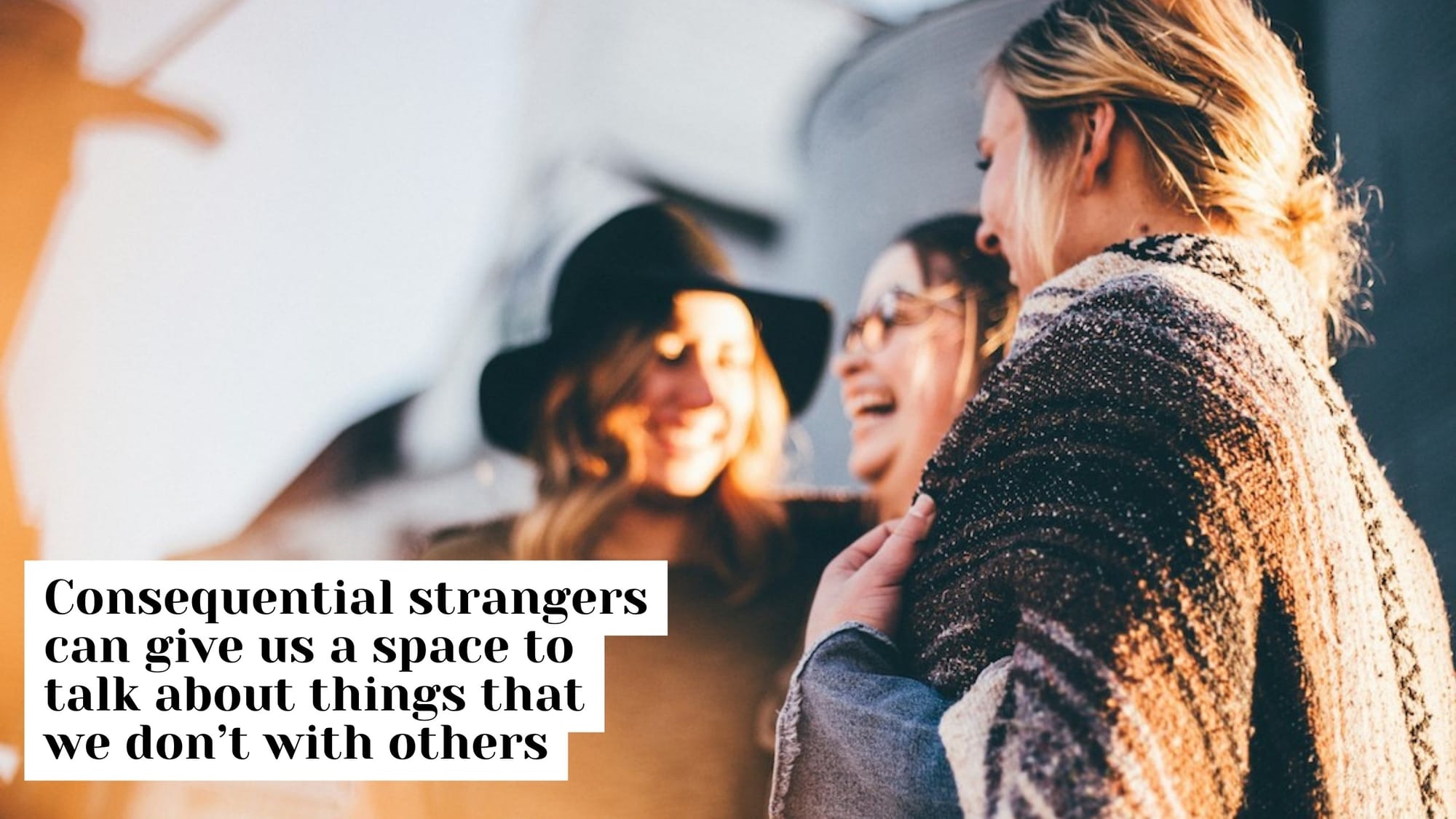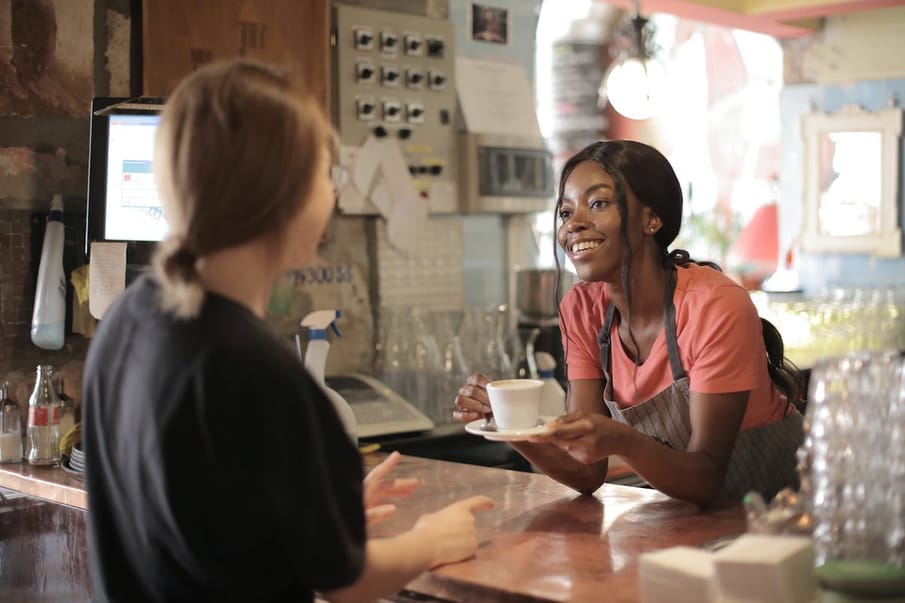How fleeting moments of connection could have a long-lasting effect
I smile as soon as I reach the counter and am greeted by the barista who knows my name and order. We ask each other how we’re doing, and as I head to a table, latte in hand, I feel a lightness in my step.
Chances are, there are people you come into contact with in your day-to-day life where you have this same feeling. You may not know much about them, but the interactions you have put a smile on your face.
People like this are sometimes called ‘consequential strangers’ or ‘weak ties’. They could be the neighbour you chat to as you do the gardening; the person you regularly make small talk with at the gym; or even co-workers in a different team who you look forward to seeing each morning in the elevator but don’t know well.
The term ‘consequential stranger’ was coined by psychologist Karen L Fingerman, and can cover a range of relationships. A consequential stranger goes beyond someone, say, you notice at the bus stop every so often but never speak to. They are people we interact with. There is a spectrum, and this can include people who you may call ‘acquaintances’: those who you feel you know to some extent, but aren’t close enough to call friends.
Typically, our lives feature many consequential strangers. We may only know some of them for a short time, whereas others may become longstanding parts of our day-to-day lives.
Why connections like these matter
Like me, counsellor Tina Chummun has found that the barista she sees regularly is an important consequential stranger to her. “Sometimes I will receive feedback from the barista which will resonate so much with me, and I trust it because the barista has a completely different and subjective perspective of me,” she explains. “It’s like the context of our meeting is what gives me more value with the words I receive back.” Consequential strangers can give us a space to talk about things that perhaps we don’t with other people in our lives, and to hear different perspectives.
“What’s also great about these moments is that it can be good for someone’s wellbeing,” adds Tina. “People are free from having any responsibility to a stranger, other than to connect with them at that moment, while having a good space to think about themselves.”
I find that the consequential strangers in my life help me feel a stronger sense of belonging to my community. These connections can also help with loneliness, as well as potentially being people we can turn to for support.
Developing relationships
If you’d like to have more consequential strangers in your life but are unsure or nervous about this, Tina explains that doing what we can to build our confidence can help. She recommends starting by writing a list of the things you are happy about with yourself, and a list of everything you have achieved in your life, big and small, and all the things you like to do. This not only boosts self-worth, but can help spark ideas for conversation and identify the interests we have that we could use to reach out to people. When you feel ready, try making conversation.
“There are many ways that you can approach strangers and start conversations, and it’s all dependent on the context of the situation you are in,” says Tina. “If you’re at a train station waiting for a train and it’s been delayed, you can strike up a conversation about how annoying this is.” You may find that this brings you into a fuller conversation, but even if you only have a fleeting exchange with someone, this is a great way to build your confidence.

“If you approach someone with a question and they do not respond, remind yourself that it is OK, and their non-engagement with you wasn’t about you, it was that they were not ready to speak to anyone,” reassures Tina. “And as hard as that may have felt for you, it’s OK to move on and try to speak to someone else who will be different with you.”
And, then, what about the consequential strangers we already have in our lives, who we may want to get to know better? Perhaps you really look forward to chatting with that colleague you see in the office kitchen most days, and wish your conversations lasted longer than it takes for the kettle to boil.
Tina recommends taking a chance and being honest about wanting to spend more time with them. This doesn’t have to be big – it’s about identifying what a natural next step could be. Could you ask that colleague if they want to grab lunch with you? If there’s a person you always stay behind talking with at yoga each week, how about saying you’re about to go get a coffee and asking whether they would like to come along?
Of course, not every consequential stranger is going to become a good friend – and that’s OK. They are still a valuable part of your life, able to make you smile and feel a sense of connection. And that in itself is well worth celebrating.


Comments